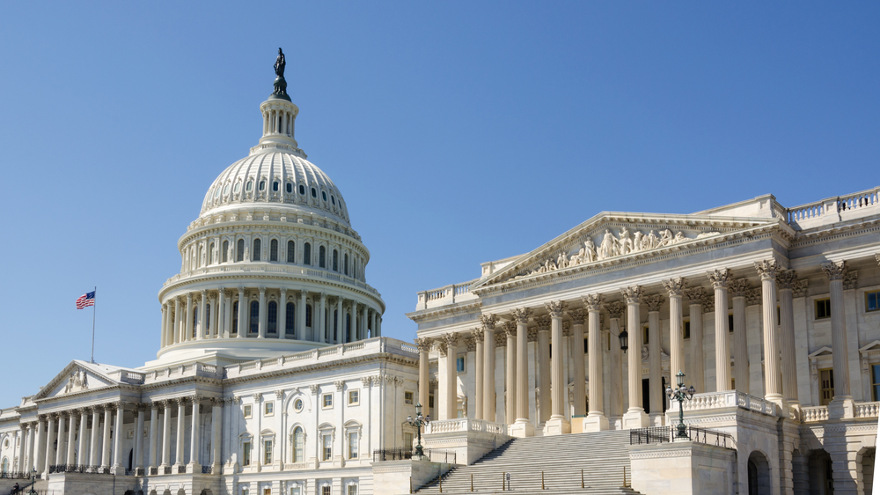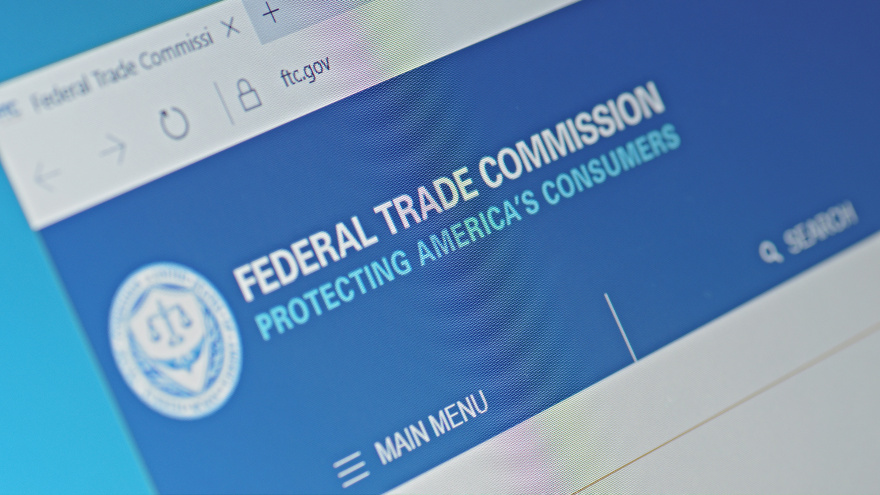Independent dealers are making sure their collective voices are heard by federal lawmakers this week.
The National Independent Automobile Dealers Association’s annual National Policy Conference and Day on Capitol Hill opens on Monday in Washington D.C., as independent dealers arrived from across the country to continue to expand the growing footprint of the used-vehicle industry in the nation’s capital.
NIADA highlighted that one of the industry’s most important events of the year promises to make a bigger impact than ever before, with dealers and industry leaders expected to engage with more members of Congress and Congressional staff than ever before, topping the record of 110 meetings set at the 2017 NPC.
Since returning to Washington in 2013, the National Policy Conference has given independent dealers the chance to meet face-to-face with legislators and regulators, making the voice of the used-vehicle industry, independent dealers and small business heard and represented in shaping the policies of the federal government.
“This event is a truly amazing opportunity for independent dealers to be able to come to Washington D.C. and get involved in the process,” said NIADA president Andy Gabler, owner of Lakeside Auto Group in Erie, Pa.
“During the past five years, NIADA has made huge strides in our presence in Washington. Legislators and regulators know who we are and respect what we do. We have made our voice heard, educated legislators and created important relationships,” Gabler continued.
The highlight of the event is Wednesday’s Day on Capitol Hill when some 200 dealers and industry partners representing the national association and its various state affiliates will meet with Senators and Representatives or their staff to advocate for the industry against tariffs, and in support of making the reforms of the Tax Cuts and Jobs Act permanent.
In addition, Reps. Roger Williams (R-Texas), Mark Walker (R-N.C.), Mike Rogers (R-ala.), Barry Loudermilk (R-Ga.) and John Carter (R-Texas), as well as Massachusetts Republican Senate candidate Geoff Diehl are expected to attend the annual Friends of the Auto Industry Congressional Reception on Tuesday night, and Rep. Mike Kelly (R-Pa.) will speak at the Power Lunch in the Kennedy Caucus Room during the Day on the Hill.
The NIADA Political Action Committee will present its Legislator of the Year award during the conference.
The conference also features a series of regulatory briefings on Tuesday at the Ritz-Carlton Pentagon City, including updates from the Bureau of Consumer Financial Protection, the Federal Trade Commission, the National Highway Traffic Safety Administration, the Occupational Health and Safety Administration, the American Association of Motor Vehicle Administrators and the House Ways and Means Committee.
Tuesday’s agenda also features an address from keynote speaker Chris Stirewalt, Fox News’ politics editor and co-host of the popular weekly podcast "I’ll Tell You What".
This one cuts close to home because the dealer in question is local to us at Ignite Consulting Partners, and I fear that a significant number of BHPH dealers are similarly vulnerable. And now, there is yet another case on the books that casts BHPH dealers in a negative light.
Without losing a lot of you by going into too much legal and procedural detail, the fact surrounding this case are that in February 2014, Ms. Watson purchased a vehicle from Yates Brothers Motor Co. The contract required her to keep the vehicle insured. There was a dispute regarding coverage, and Yates repossessed the vehicle in early April. It initially claimed that the lack of insurance was the sole reason for repossession. After the repossession, Watson provided written proof that she did have insurance at all times. Nevertheless, Yates sought a $500 repossession fee and when Watson did not pay it, Yates sold the vehicle.
In the lawsuit and trial that followed, Ms. Watson was awarded actual damages of almost $3,000, other damages of almost $8,500 and $87,000 for her attorney’s fees. Who knows how much the dealer had to pay to its own lawyers. You read that right. A $500 dispute turned into a verdict of almost $100,000 and again, that doesn't include its own attorney’s fees.
Many of the reported facts in this case come directly from my nightmares. I’m paraphrasing a bit for the sake of brevity, but if you want to research the case, it’s Yates Brothers Motor Company, Inc., v. Donna Watson, and it was decided by the Court of Appeals in Texas in March.
The allegations of the lawsuit included that BHPH dealer:
• Used a tow truck its employee had access to in the repossession
• Charged customer $500 for repossession even after it was provided proof of insurance
• Claimed one reason was lack of insurance for repossession and then added other reasons later
• Didn’t follow its own policies
• Didn’t have adequate processes for the recording of administrative tasks
• Installed a GPS device in vehicle without obtaining customer consent or providing notice
To these allegations, I’ll add one more of my own: It sure seems like the dealer failed to honestly evaluate the situation it was in. Unfortunately, I think that happens a lot in our business. Hoping that the customer can’t afford a lawyer or nobody will scrutinize your practices closely is not a safe strategy.
I’m compelled to write about this case because this is the danger all BHPH dealers face. Don’t simply read this post and move on to the next chore. Ask yourself whether your dealership could withstand this type of attack. Ask yourself whether you have the resources to defend yourself.
Perhaps most importantly, ask whether you pro-actively protect your business and take compliance seriously.
Steve Levine is chief legal and compliance officer of Ignite Consulting Partners, which offers compliance, technology, process improvement and cyber security guidance to car dealers and finance companies. The combined experience of the Ignite team allows them to develop strategy, overcome internal obstacles and implement meaningful change. Contact [email protected] to learn more. You can follow Steve on Twitter @LawyerLevine for compliance and industry-related content.
If lately you’ve noticed faster performance by your smartphone on Verizon’s mobile network, you might also be encouraged if your collateral is monitored by PassTime.
GPS solutions provider PassTime recently highlighted its all-new TRAX 6 device, what the company said is the industry’s first LTE Category M GPS tracking device serving franchised, independent and buy-here, pay-here dealers, finance companies, and fleet and powersports dealers.
PassTime explained the TRAX 6 — certified on Verizon Wireless — features LTE Cat M (category M) technology that boasts extremely low power consumption from the device as well as network longevity in using some of the newest network technology available. These enhancements will complement the robust feature set already available on TRAX, according to PassTime president and chief operating officer Chris Macheca.
“I am excited to bring another cutting-edge product to the market,” Macheca said. “PassTime continues to shatter expectations in terms of innovation with TRAX 6, the industry’s first LTE Cat M GPS device.”
PassTime, which has been in business for more than 25 years, provides GPS Solutions for customers to connect their vehicles and protect their assets.
The company said TRAX 6 is currently in production and will be commercially available soon.
For more information, contact PassTime at (877) 727-7846 or [email protected].
There is, perhaps, no better illustration of the “with great risk, comes great reward” concept than buy-here, pay-here.
However, the advent of automated billing systems has decreased the risks associated with this market while improving cash flow and profits for these dealerships. In short, these systems offer a disciplined approach to billing and collections, tasks that are needed in a sector that lacks sophisticated practices.
First some history. This subprime financing practice took hold in the 1980s in response to the savings and loan crisis and strengthened in 2005 through 2008 with the financial crisis.
This volatile sector has reflected a roller-coaster ride in recent years. In the first quarter of 2011, BHPH dealers held a total of 9.5-percent market share of all used-car financing in the United States. It then dropped to 6.2 percent in late 2015 as traditional finance companies dabbled in this risky market, according to Experian Automotive. This significantly decreased a large revenue stream for used-car dealers since these loan portfolios were a large profit center.
As the economy has improved, traditional financial institutions have shied away from subprime loans, and now BHPH dealerships have re-gained their position to nearly 12 percent of the total share of used car financing in the United States. This is good news for the dealers who in recent years have seen growth in their loan portfolios.
But with this growth must come more efficient portfolio management through a decrease in default buyers. Many dealers are finding solutions through automated billing systems. The results are clear: a reduced number of delinquent payments, with more loans going to term and fewer repossessions, makes for a much more valuable portfolio.
In an industry that is accustomed to delinquencies, every healthy account contributes to the bottom line. Many independent dealers are increasingly using these systems to automate tasks related to billing and accounts receivable. Once implemented these programs free up finance departments of the tedious and frustrating tasks of collecting outstanding bills and invoices from a distressed demographic whose bank accounts are traditionally oversubscribed.
In this risky sector, the vendors that are the easiest to pay, traditionally get paid first. Many subprime lenders require customers to mail payments or bring cash or money orders to the dealership. For many, some who typically work multiple jobs, this is too cumbersome.
One of the biggest benefits of automated payment systems is that it enables the borrower to make a payment in a time and method that is most convenient for them, not the dealer.
Let’s take a look at some of the advantages:
1. Invoices are presented on a timely, professional basis. There are instructions with how to pay with one click or text, and clear explanations of due dates and penalties (late fees, repossession, etc.) for late payments.
2. These systems can also be programmed to address past-due accounts and delinquencies with customized texts, emails, and phone calls reminding owners of past due amounts and providing a one click or text solution to make an immediate payment.
3. A major benefit is that these automated payment systems offer a variety of payment methods to make it easy and convenient for the car owner such as credit and debit cards, electronic checks and ACH, and even cash payments. They can also enable automatic billing to a designated account on specific dates or custom schedules to eliminate delinquencies altogether.
Another advantage is that these systems take all of the guesswork out of who paid and who didn’t since they keep accurate logs of each buyer’s payment history.
Consider other advantages:
• Seamless integration with popular DMS, LOS and other accounting systems
• Variety of convenient payment options including credit, debit, ACH and cash
• Payments can be made over the phone, online, via SMS or mobile app, or in person
• Clients can securely pay with one click or text
• Having an automated billing system allows BHPH operators to sell their portfolios at a higher value since lenders that would acquire the portfolio perceive customers that are on self/auto pay as more valuable. Having more data on payment trends and demonstrating preferred communication method also increases value to portfolio buyers.
Independent used car dealers have a unique opportunity as traditional institutions move away from financing purchases by those with poor credit scores. This is a lucrative source of revenue for the BHPH dealerships which have a window to maximize portfolio performance by using sophisticated billing and collections processes offered by these automated systems.
Thomas Aronica is founder and chief executive officer of Miami-based SkyBank Financial (www.skybankfinancial.com), a full-service merchant services company providing a wide range of payment solutions. He is also the founder of Biller Genie (www.billergenie.com), an automated billing system that specializes in helping independent dealerships manage their accounts receivable.
Independent dealers went into 2018 with an upbeat mood.
Why? The economic and retail sales growth expectations of independent dealers have improved substantially, according to the National Independent Automobile Dealers Association’s business confidence survey for the fourth quarter of 2017.
The survey of NIADA members is conducted each quarter in partnership with Equifax to gauge the viewpoint of used-vehicle dealers regarding general economic conditions and business concerns.
The association highlighted that 50 percent of the dealers surveyed said they expected economic conditions to improve in Q1 2018, up from 36 percent in the Q3 survey.
The results showed retail sales growth expectations improved from 55 to 67 percent, and the number of dealers who expected to increase their inventory investment this quarter rose 17 percentage points — a 42.5 percent increase from Q3.
NIADA pointed out that its dealer sentiment results align with a recent survey of members of the National Federation of Independent Business that showed optimism near an all-time high, at a level not seen in 34 years, according to NFIB president and chief executive officer Juanita Duggan.
NIADA determined the big drivers of that renewed positivity include expectations of tax relief from the new tax bill passed by Congress, positive consumer sentiment due to the lowest unemployment rate in more than 30 years and confidence in the current administration’s pro-growth, anti-regulation policies.
The association acknowledged used-vehicle inventory costs remain robust, with the latest Manheim Index climbing 7.8 percent year-over-year.
NIADA noted that inflationary inventory situation continues to put pressure on the business expense side of the ledger, which is one reason 57 percent of dealers expected their cost of doing business to increase, up from 45 percent in Q3.
Survey orchestrators explained that jump also reflects the significant investment independent auto dealers continue to make in their digital showroom — as reflected in the survey, which shows 56 percent planned to increase their digital marketing spend.
And like any entrepreneur might say, NIADA’s latest project to gauge dealer mindsets emphasized how the cost of doing business weighs heavily on operators.
The expectation of rising expenses also showed up in dealers’ perception of the single most important problem facing their business — 25 percent said it was the increased cost of doing business — by far the most popular choice.
The cost of doing business was followed by heightened competition from franchised dealers (17 percent), lack of customer prospect traffic/leads and lack of quality retail inventory (12 percent).
NIADA mentioned government regulations/red tape — usually one of the most popular responses — was near the bottom of the list at 6 percent.
The overall picture shows NIADA members expected business to improve heading deeper into 2018.
That optimism is bolstered by strong 3.9 percent holiday retail sales growth — well above the 10-year average of 2.6 percent — as well as rising wages, stock market strength, increasing employment and a generally positive economic outlook.
The complete survey data from NIADA and Equifax can be viewed here.
Lyft and NIADA partner to help dealers turn metal
In other association news, ride-sharing provider Lyft has joined with NIADA as its latest National Member Benefit partner.
The partnership, what NIADA contends is unprecedented in the ride-sharing industry, provides dealer members with opportunities to improve their bottom line through referral incentives and improved transportation solutions for customers while also supporting Lyft’s efforts to expand its driver community and providing economic opportunities for dealership customers.
NIADA member dealerships can sign up to be a Lyft referral partner and receive bonuses for each driver they refer. Customers who sign up for the program will also receive a bonus shortly after they begin driving for Lyft, which they can put toward their down payment and monthly costs of purchasing a vehicle.
The partnership enables dealerships to increase sales through the Lyft referral program.
In addition, Lyft’s Concierge program can offer NIADA members an easy, reliable and inexpensive way to provide transportation for customers whose vehicles are laid up in service.
Concierge can enable the dealership to request rides for its customers to get where they need to go while their car is being serviced, whether it’s running errands, going to work or heading home to take care of their children.
Increased mobility provides a better experience for the customer in a cost-efficient way, according to both Lyft and NIADA.
“We are excited to work with NIADA in a unique partnership that’s helping 20,000 independently owned dealerships increase profits and elevate their customer service while expanding our driver community and growing our Concierge portfolio,” said Gyre Renwick, vice president of Lyft Business.
“By leveraging our holistic business solutions strategy, NIADA is able to provide independent dealers across the country with referral opportunities for every driver sign-up, with the potential to lead to an increase in sales,” Renwick continued.
“Simultaneously, we’re also helping improve the overall customer experience by giving dealerships the ability to dispatch Lyft rides for customers whose vehicles are being serviced, through our Concierge platform,” Renwick went on to say.
NIADA senior vice president of member services Scott Lilja insisted teaming with Lyft provides an “unparalleled opportunity” for NIADA members to profit from the growing opportunities created by the emerging ride-sharing industry.
“Forging new, innovative partnerships that foster synergies between emerging and traditional mobility solutions while helping our membership sell more vehicles and satisfy more customers fits perfectly with our National Member Benefit partnership mission,” Lilja said.
Registration open for NIADA/NABD Conference
Now that the National Alliance of Buy-Here, Pay-Here Dealers has been acquired by NIADA, independent operators need to make only national conference trip this summer.
The NIADA/NABD Convention and Expo, set for June 18-21 at the Rosen Shingle Creek Resort in Orlando, Fla., is a product of the National Independent Automobile Dealers Association’s acquisition of the assets and operations of the National Alliance of Buy Here-Pay Here Dealers, a deal that merged NABD’s conference and educational services into those of NIADA.
“We believe the combined Mega-Conference will be the largest in the used car industry and will provide unmatched resources for all dealers and allied industry partners,” NIADA chief executive officer Steve Jordan said. “Our goal is to provide a true one-stop shop for dealer education and specialized training for any automotive dealer business model, including the BHPH-specific topics and information you’ve come to expect from NABD over the past 19 years.”
In addition to NABD’s BHPH education, attendees can look forward to sessions offering training from the industry’s best and brightest in retail operations, compliance, certified pre-owned, business operations and much, much more.
It will also include the largest Expo Hall in NIADA Convention history, packed with more than 200 exhibitors offering the latest cutting-edge technology, products and services designed to help dealers stay on top of the ultra-competitive used car market.
NIADA acquired NABD on Dec. 14, completing more than two years of review, strategic discussions and due diligence and providing a succession plan for NABD, founded in 1998 by Ken Shilson.
“Success in this industry is about working together,” said Shilson, NABD’s president. “It’s about using our collective resources to help our members succeed. And that’s exactly what we’ve done here. We’re working together for the success of the used car industry, which is what this merger is about.”
NABD’s Ingram Walters agreed the deal embodies what NABD has always been about.
“Our goal at NABD has always been the dealers’ success,” Walter said. “This combination will provide even more basis for that and an ongoing plan for their success.”
The NABD staff will transition into NIADA and continue in expanded roles to serve the needs of NABD members, NIADA members and the BHPH industry.
“NABD has provided a strong voice and specialized educational resources to more than 14,000 members over the past 19 years,” Jordan said. “I am pleased that the NABD legacy will live on within NIADA as we continue to develop new ways to serve the entire used motor vehicle industry.”
A fall conference in Las Vegas is also under development, with plans to be announced in the coming months.
To register for the upcoming NIADA/NABD Convention and Expo or for more information, visit www.niadaconvention.com or www.bhphinfo.com.
The National Independent Automobile Dealers Association reminded operators about an important change from the Federal Trade Commission that went in effect this past Sunday.
NIADA said dealers now are required to display the new version of the federally mandated buyers guide form on all used vehicles displayed for sale to consumers.
Following a lengthy review of the Used Motor Vehicle Trade Regulation — commonly referred to as the Used Car Rule — in November 2016, NIADA recapped that the FTC released a revised rule that includes changes to the buyers guide form.
The FTC gave dealers until Jan. 28, 2018 to exhaust existing supplies of the old buyers guide before requiring the revised form.
“NIADA worked extensively with the FTC on its review of the Used Car Rule to ensure any change to the rule did not impose a new regulatory burden on dealers,” association officials said.
“Through NIADA’s efforts, the amendments to the rule do not change its essential requirements – but the Buyers Guide form has changed,” they continued.
NIADA recapped that the revisions to the form include:
• A recommendation consumers get a vehicle history report before buying a used car that sends them to ftc.gov/usedcars for more information on how to get one
• Directions for consumers to visit safercar.gov to check for safety recalls before purchasing a used vehicle
• A new description of an “As Is” sale to clarify that “As Is” refers only to whether the vehicle is offered with a warranty from the dealer
• Boxes dealers can check if they wish to indicate whether a vehicle is covered by a third-party warranty and whether a service contract may be available
• A box dealers can check to indicate an unexpired manufacturer’s warranty applies
• A statement in Spanish on English versions of the form advising Spanish-speaking consumers to ask for the Buyers Guide in Spanish if the dealer is conducting the sale in Spanish
• Addition of air bags and catalytic converters to the list of major defects that can occur in used vehicles.
Dealers can obtain an English version of the new buyers guide through this website.
Ken Shilson, president of the National Alliance of Buy-Here, Pay-Here Dealers, reported that more than 50 percent of the surveyed attendees who came to the recent Fall BHPH Conference had never been to an NABD event previously.
Evidently, those operators left Orlando, Fla., as quite satisfied customers.
“Attendee evaluations unanimously indicated that the program will help them succeed in 2018 and beyond,” Shilson said. “Our speakers and sponsors did an outstanding job and made the event one of the most popular conferences in our 20-year history.”
At least one of those attendees appears to be ready to come to future NABD conferences, as well.
“It was great. I found out I’ve been operating in the dark for a few years now. I will never miss it anymore,” said Ivan Tello of Irotema Holdings in Land O’Lakes, Fla.
Vincent Lewis of Crown Auto Sales & Finance of Charlotte, N.C., added, “The NABD Conference organizers truly understand the needs of the dealers. The BHPH business is a very diverse business.”
The three-day event with the theme, “Opportunity Knocks – Best Ways to Respond,” began with a session orchestrated by Shilson and NABD’s Ingram Walters that also featured BHPH Hall of Fame inductions of Rick Potter and Stan Schwarz, who made life-long contributions to the BHPH industry and were inducted posthumously.
The conference included 14 different concurrent workshop Sessions covering inventory acquisition and financing, national reconditioning survey results, ways to increase sales, F&I products for success, GPS collection tools, DMS software solutions, capital acquisition, integrated technology solutions, regulatory protection by state dealer associations, an accounting/tax update, maximizing recoveries, best underwriting practices and collection “hot spots” to avoid.
All these workshops were interactive so attendees could ask questions and get answers on these important topics.
“Great training. I came last year, and it is one of the best, more educational conferences I have attended,” said Kim Frederick of Motory Group in Gainesville, Fla.
“Don’t be good, be better. The NABD will help you and your business be better," said Irma Gamboa of Fresh Start Finance in El Paso, Texas.
Thomas Rainey, of McNair McLemore, Middlebrooks & Co., in Macon, Ga., added, “Very educational and informative. Learned a lot and realized there is a lot I need to learn.”
The event also featured a “first timer” reception with more than 150 attendees.
Another highlight was the charity auction of a customized golf cart donated by Manheim. The proceeds from the auction went to the hurricane relief fund established by the National Independent Automobile Dealers Association and the Texas Independent Automobile Dealers Association for the benefit of victims of these recent natural disasters.
NABD announced that a portion of the conference proceeds will be donated to the relief fund, too.
“The NABD Orlando conference continues to bring important information and training to the buy-here pay-here dealer attendees. As the industry continues to mature, the relationship between vendors and dealers becomes more critical. Thanks to NABD and NIADA for making conferences like this possible,” said Bill Murphy of Collateral Protection Insurance and Associates of Huntsville, Texas.
Conference presentations, photos and more are now available on NABD’s website at www.bhphinfo.com.
J.D. Byrider is facing a lawsuit from the Massachusetts attorney general filled with allegations about its business practices and the quality of its vehicles.
Attorney General Maura Healey has sued J.D. Byrider, which has four buy-here, pay-here franchises in Massachusetts, for allegedly using predatory practices in its sale of defective vehicles with high cost installment contracts.
The AG’s lawsuit alleges that J.D. Byrider took advantage of consumers by routinely “trapping” them in an unsustainable and unfavorable sales package officials said is known as the “J.D. Byrider Program.”
According to the complaint, the attorney general’s office said consumers were unaware that J.D. Byrider priced its vehicles at more than double their retail value and required drivers to sign on to an installment contract with an annual percentage rate of 20 percent, regardless of their credit qualifications.
Officials added that J.D. Byrider bundles its “expensive and limited” extended service contract into the contract as well, “forcing” consumers to pay 20 percent interest on that product. To get the benefit of the service contract, consumers are then required to use a J.D. Byrider service center.
The AG’s office alleges that the vehicles sold by J.D. Byrider are defective and sometimes inoperable, despite misrepresentations of time and money spent reconditioning them prior to sale. Officials said hundreds of vehicles have been returned by consumers to J.D. Byrider for repair within three months of purchase due to the mechanical breakdown of a major component such as the engine, electrical system, transmission, brakes or drive train.
The AG’s complaint further alleges that J.D. Byrider employs a faulty underwriting process that underestimates the consumer’s expenses and costs in order to qualify them for contracts they can’t afford.
As a result of these practices, the AG’s complaint alleges more than half of J.D. Byrider’s deals fail or end in repossession, causing substantial and long-term economic harm to consumers. This is not just due to the inflated costs, but also due to losing transportation and suffering long term damage to their credit, as well.
Healey’s complaint against the defendants seeks injunctive relief and restitution for consumers, as well as penalties, costs and attorney fees.
J.D. Byrider has dealerships at four Massachusetts locations — Brockton, Dorchester, Dartmouth and Springfield.
“We allege that J.D. Byrider ripped off Massachusetts drivers by offering predatory loans for defective and inoperable cars,” Healey said. “Our goal in this lawsuit is to recover losses to Massachusetts consumers and make this company pay for the harm they caused to thousands of drivers across this state.”
The entire lawsuit can be found here.
This week, Rep. Roger Williams was been selected by the National Independent Automobile Dealers Association as the winner of the first NIADA Legislator of the Year award.
The award will be presented annually to recognize a member of Congress for dedicated service to the automobile industry. The inaugural award was presented during a rooftop reception Tuesday evening as part of NIADA's National Policy Conference.
That Williams has long been a supporter of the used vehicle industry should come as no surprise. The Texas Republican is a dealer himself, having owned and operated a dealership in Weatherford, Texas for more than 40 years — and his father, Jack, owned it previously.
As a member of the House Financial Services Committee, Williams has led the charge for tax reform as well as reforming the Consumer Financial Protection Bureau and repealing the CFPB’s rule prohibiting arbitration agreements with class-action waivers.
He is also a member of the Congressional Auto Caucus and has fought to protect the interests of the used vehicle industry and small business since winning election to Congress in 2012.
"When our industry needs a strong voice and action in Congress, he is always there,” NIADA chief executive officer Steve Jordan said. “We appreciate him. We appreciate his leadership.”
In addition to the award, Rep. Williams was presented with a contribution of $4,995 from the NIADA PAC fund.
NIADA-PAC also made contributions to Rep. Jodey Arrington (R-Texas), Rep. Robert Pittenger (R-N.C.), Rep. Scott Tipton (R-Colo.) and Rep. Tom MacArthur (R-N.J.) during Tuesday’s Friends of the Auto Industry Congressional Member Reception and Dinner at Capitol View at 400.
“My family has been in the used-car business for 79 years,” Williams said. “And this is still the greatest industry you can be in. When 9/11 happened, the first industry President Bush reached out to get the economy going again was the car dealers, new-car dealers and used-car dealers. ‘Can you do this, and can you do that to keep the economy going?’ And we did. We can all be proud of what we do.
“I’m also proud of what you’ve accomplished the past couple years in getting involved politically. Our industry is constantly under attack, and it’s got to be defended,” Williams went on to say.
PAC Cup competition raises record $94,250
In other association news connected with this week’s event, more than $90,000 was contributed to the NIADA-PAC Fund in the 2017 PAC Cup competition.
Region II — the Southeast — again claimed the prize and remains the only winner in the four-year history of the annual fundraising competition.
The PAC Cup competition pits the association's four regions in a competition to raise the most money for the NIADA Political Action Committee Fund between the NIADA Convention and Expo in June and the National Policy Conference.
Between them, the four regions contributed a record $94,250 to the PAC fund, breaking the mark set in 2016 by almost $15,000.
NIADA-PAC was created to enhance the association's mission to promote and protect the interests of the used-vehicle industry and NIADA’s dealer members nationwide. NIADA-PAC supports Congressional members and candidates who seek to protect this vital industry and keep the economic engine of small business running strong.
“Regardless of who wins the Cup, we all win because we're all in this together,” Jordan said. “These contributions are vital to giving independent vehicle dealers an important voice in shaping the policies that affect our industry and our businesses.”
Region II, which includes the Carolinas, Georgia, Florida, Alabama, Tennessee and Kentucky, raised $37,650 in contributions to the NIADA-PAC Fund to retain the trophy, which was awarded during a rooftop dinner Tuesday night at Capitol View at 400.
Region II's total held off a push from Region III (Midwest), which raised $24,750. Region I (Northeast) was third, followed by Region IV (West).
As always, the competition came down the final minute, with dealers from all four regions making contributions during the annual PAC Cup dinner Tuesday, trying to push their region over the top. More than $74,000 was contributed during the conference, which began Monday.
“This year, I really felt we had our backs to the wall,” Region II vice president Billy Graham said. “I saw some big contributions coming in from some of the other regions. But our people from all of our states just doubled down and went to work. They all did a great job and in the end we came through.”
As reports continue to arrive stemming from the damage caused by Hurricane Harvey in Texas and elsewhere along the Gulf Coast, Ignite Consulting Partners gave buy-here, pay-here dealers and other auto finance providers three reminders associated with credit reporting for consumers residing in locations declared as disaster areas.
Chief optimization officer Richard Hudson acknowledged that some BHPH operators and other data furnishers are unaware, but the consumer reporting agencies (CRA) have included guidance to institutions on how to report accounts in these circumstances.
“It is important for data furnishers to understand what they can do to help mitigate negative information on their consumers that have been impacted by natural disasters,” Hudson said in a message sent to BHPH Report. “The Credit Reporting Resource Guide gives specific guidance in their frequently asked questions and answers section on how to report trade-lines for consumers effected in this way.”
Hudson pointed out there are three ways operators can report on open accounts, including:
1. Report the Special Comment AW to indicate the account is affected by a natural disaster.
2. Report the special comment the same as option 1 and change the account status to 11.
3. If you decide to defer payments for the customer, you can report the account as deferred and change the special status to AW.
Hudson also emphasized there is a difference in the way operators need to report derogatory accounts.
“Before you make these or any related changes, it is important that you engage an expert in this area who can ensure you have updated all of the required fields correctly,” Hudson said. “You should reach out to your CRA or a firm like Ignite Consulting Partners for further guidance.
“By making these and other required changes, data furnishers will help protect their customers,” he continued. “When the consumer is able to pay again, the furnisher simply removes the comment, and the account will begin to report normally again.
“Many consumers are suffering the worst catastrophe of their lives right now. It’s important for businesses to do everything they can to get our part right,” Hudson went on to say.
Whether or not your operation is being impacted by Hurricane Harvey, Hudson discussed the intricacies of credit reporting — including the reporting of accurate information and properly responding to disputes — during a recent webinar hosted by Ignite Consulting Partners. Details about that session can be found here.











